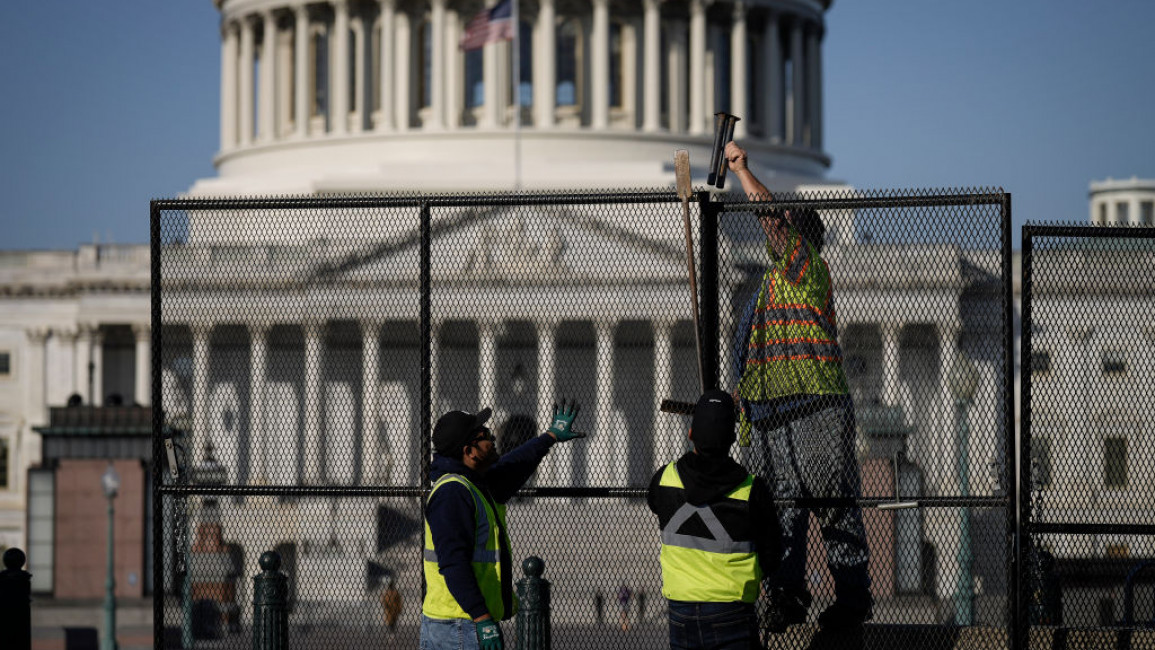Explainer: What can be expected from Biden's State of the Union address?
When US President Joe Biden gives his State of the Union speech Tuesday evening, it will be his first time doing so with a Republican-majority Congress, and the last time before the next presidential campaign season.
State of the Union speeches do not tend to be popular TV viewing in the US, particularly in the middle of a presidential term, so it is often up to the president to stick with a simple message that avoids giving his opponents ammunition. Slated for the Republican rebuttal is Arkansas Governor Sarah Huckabee Sanders, considered a rising star in the party.
"I would make this a short speech," Patrick James, professor of international relations at the University of Southern California, told The New Arab. "If he goes short, it doesn't give them too many points to go after. People are waiting for one stumble and one word out of place."
Indeed, messaging has been a major vulnerability for this president, who has long struggled with a stutter. Moreover, he has at times gone off script, told awkward jokes and anecdotes, and rambled. Likely with this in mind, his team has reportedly spent weeks crafting a clear and concise speech.
Of course, the content will also be important for the speech, an annual assessment of how the country is doing under the current president.
Depending on who is asked, Biden is either in trouble at his halfway mark, or he's nailing his job against all odds.
Some see him as struggling to stay afloat following the recent narrow Republican House victory, low (but better than previous) poll numbers, and an uncertain future for a party with no clear heir-apparent and a significant number of vulnerable seats in the House and Senate in 2024.
"I think this administration is basically under siege. We do not have what I'd call risk. We're in the world of uncertainty," said Patrick, referring to Biden's the Democratic party's persistent vulnerabilities. "Biden's greatest asset is the horrific state of the Republican party," he said, noting Republicans' recent losses by largely unvetted candidates in swing states.
On the other hand, the president is seen by many as surprisingly effective, with his ability to get through the infrastructure bill and the Inflation Reduction Act, albeit modified versions; his announcement of student debt relief (which is being contested); and his efforts to onshore IT and green energy jobs to the long-struggling Rust Belt of the industrial Midwest.
"He's had a pretty good legislative first two years," J. Miles Coleman, associate editor of Sabato's Crystal Ball at the University of Virginia Center for Politics, told TNA. "There's been the infrastructure bill the Inflation Reduction Act, unemployment down. He'll have to hammer that home. His approval rating is not as bad as it was at some points last year, but he's still underwater [under 50%]."
The president is not expected to go into much detail in his speech, given the pressure on him at this tense moment in US political history, which will likely mean little time for foreign policy.
Sarah Bauerle Danzman, associate professor of international studies at Indiana University Bloomington, told TNA she would be interested to hear about US partnerships in Latin America and Africa, as well as the US relationship with Israel and its new right-wing government, all of which she does not expect to come up. She does, however, expect to hear about China, given the bipartisan sentiment for taking a hard line against it, particularly with the past weekend's surveillance balloon.
"Normally, hardly anything is a surprise," she said. "What I'm interested in is to get a sense of how much time the president spends on a given topic, where it goes, and how the administration is defining the problem. That shows how much priority the issue has when they're under time constraints."



